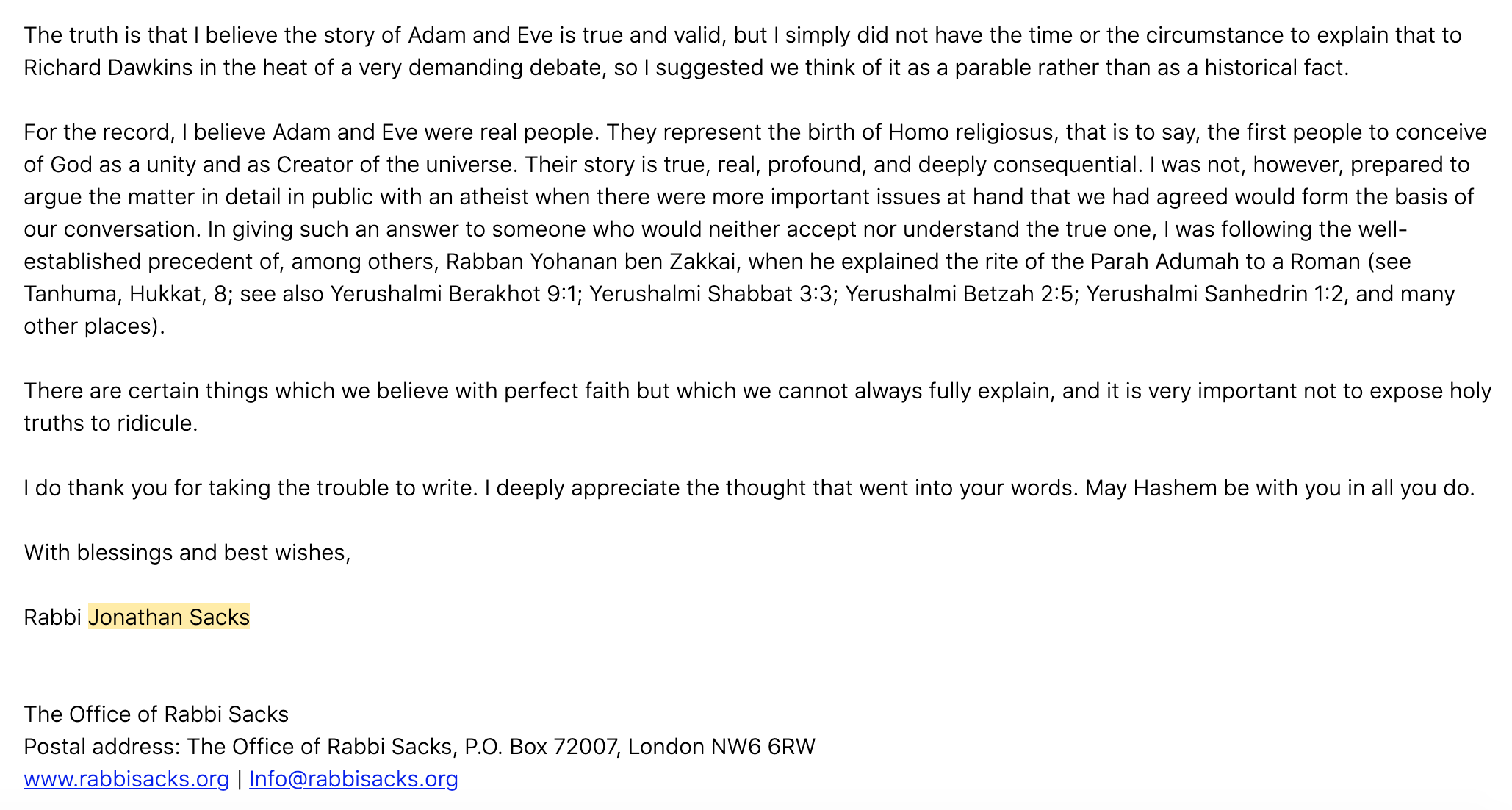I wrote to Rabbi Sacks and he said that he believes the story of Adam and Eve to be true, but that he did not have the time to explain it to Richard Dawkins in the debate. He, therefore, suggested thinking of it more as a parable rather than as a historic fact. But he does believe that they were real people. This is a well-established precedent that other rabbis of the past had followed (e. g. Rs' Yohanan ben Zaikai to Parah Adumah).
Here are Rabbi Sacks' own words. This was what he wrote me:
Thank you for your email. Below is Rabbi Sacks’ response to this
question;
The truth is that I believe the story of Adam and Eve is true and
valid, but I simply did not have the time or the circumstance to
explain that to Richard Dawkins in the heat of a very demanding
debate, so I suggested we think of it as a parable rather than as a
historical fact.
For the record, I believe Adam and Eve were real people. They
represent the birth of Homo religiosus, that is to say, the first
people to conceive of God as a unity and as Creator of the universe.
Their story is true, real, profound, and deeply consequential. I was
not, however, prepared to argue the matter in detail in public with an
atheist when there were more important issues at hand that we had
agreed would form the basis of our conversation. In giving such an
answer to someone who would neither accept nor understand the true
one, I was following the well-established precedent of, among others,
Rabban Yohanan ben Zakkai, when he explained the rite of the Parah
Adumah to a Roman (see Tanhuma, Hukkat, 8; see also Yerushalmi
Berakhot 9:1; Yerushalmi Shabbat 3:3; Yerushalmi Betzah 2:5;
Yerushalmi Sanhedrin 1:2, and many other places).
There are certain things which we believe with perfect faith but which
we cannot always fully explain, and it is very important not to expose
holy truths to ridicule.
I do thank you for taking the trouble to write. I deeply appreciate
the thought that went into your words. May Hashem be with you in all
you do.
With blessings and best wishes,
Rabbi Jonathan Sacks
The Office of Rabbi Sacks Postal address: The Office of Rabbi Sacks,
P.O. Box 72007, London NW6 6RW www.rabbisacks.org |
[email protected]
As Rabbi Sacks wrote, it is always very important not to expose holy truths to ridicule. Because that is what people will do when they could not possibly understand.


